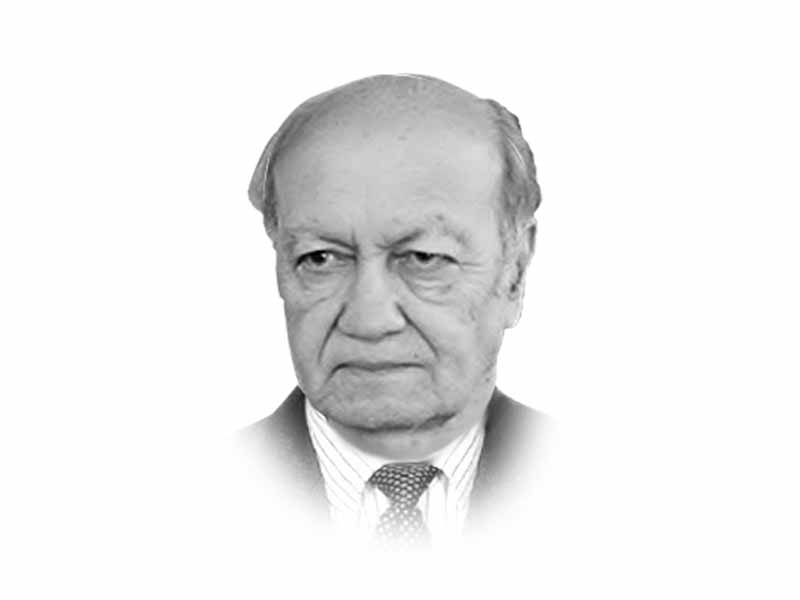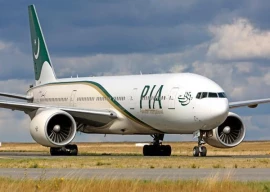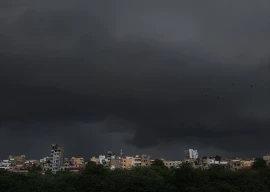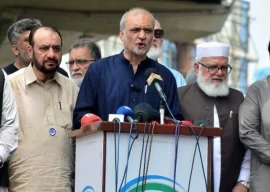
Probably such activity is normal in politics especially of developing countries to woo the voter. One would expect from our politicians that along with it serious issues and challenges facing the country were given even a higher priority. As of now that part of politics needs to be implemented more forcefully.
It is to be seen to what extent the recent political manoeuvering and judicial verdicts would cripple the PML-N’s popularity and impact on the election results. The media blitz against corrupt politicians also continues and is mostly directed against the PML-N. We are already seeing that those PML-N politicians who are weather birds are changing their loyalties and have migrated to other parties especially the PTI or standing as independents affecting the organisational structure of the party and demoralising the workers.
Changing parties or standing as independents is a rare phenomenon in developed democracies, which unfortunately has become a norm in Pakistan’s politics. It reflects poorly on the value system of a certain class of politicians. This practice has roots going back to the very inception of Pakistan. For these politicians, ideology, principles and loyalty have hardly any relevance. It will be in the interest of democracy to enact certain laws to curb the emergence of independents.
Democracy within political parties is only nominal. If genuine elections were held for choosing party leaders it would strengthen democracy and throw up better leadership at all tiers. Another issue that demands attention is the practice of leaders standing from multiple constituencies. The only purpose it serves is to massage the ego of the leaders. Whereas it is a drag on national resources and time consuming and should be restricted at best to two constituencies as is the case in many countries.
It is common knowledge that free and fair elections held on time result in gradual maturation of democratic consensus among the political elite. On the contrary constant meddling and interference, as has been the practice and tradition in Pakistan, weakens democracy. It is important that in the coming elections outside forces are not allowed to interfere or play any role that could deprive the voter of the right of choosing his candidate in elections.
As regards the military’s grip on power it will be diluted over time if future political governments through good governance and genuine interest in parliament and legislation are able to gain the support of the people. We have in front of us the recent example of Turkey where President Erdogan by improving the economy manifold was able to win over the confidence of his people and push back the armed forces to the barracks. The July 2016 attempted coup in Turkey against state institutions, including the government and President Erdogan, was carried out by a faction of the Turkish armed forces and had the backing of Fethullah Gulen-led political party. It resulted in a lot of bloodshed and deep polarisation of society. In hindsight, it appears all this could have been avoided if the urge to capture power was undertaken through the ballot box. As a well-wisher of Turkey one would hope that President Erdogan, now fully in command, would heal the wounds of the society.
Strengthening democracy should contribute in conducting foreign policy more effectively. After the elections our foreign policy goals should be pursued with renewed vigour. Recent attempts at improving relations with Afghanistan seem to be showing results. Interacting at institutional level and developing personal relationship by the leadership has been a good route to follow.
Similarly, serious attention should be given to improving relations with India and Bangladesh. With the US we have yet to build the confidence that we are not supporting the Haqqani network and the Afghan Shura. The elimination of the notorious militant Taliban leader, Mullah Fazlullah, and his associates in a drone strike in the Kunar province of Afghanistan was a positive gesture by the US. Was this given due weightage and recognition would be the expectation of Washington.
Pakistan to overcome its present multiple crises needs a strong and stable government that is in a position to take difficult decisions especially relating to the economy, security and foreign policy. Whereas we are told that the expectation is that the coming elections will throw up a weak coalition that is vulnerable to manipulation. Nothing would be more disadvantageous for Pakistan if that were the outcome. Moreover, without consolidating democracy it would be well nigh impossible to implement major economic and social reforms. Failing to see the interdependence of politics and economics and security has been the fundamental weakness of our decision-makers. It is only through diffusion of power that Pakistan will be able to strengthen democracy. Then the correlation between political legitimacy and political will has never been taken seriously or understood by our elite. Without legitimacy, addressing serious national challenges and human indignities is greatly restricted. No wonder most of Pakistan’s problems remain unresolved. The elections once again provide an opportunity to address these issues.
Published in The Express Tribune, July 4th, 2018.
Like Opinion & Editorial on Facebook, follow @ETOpEd on Twitter to receive all updates on all our daily pieces.













COMMENTS (2)
Comments are moderated and generally will be posted if they are on-topic and not abusive.
For more information, please see our Comments FAQ